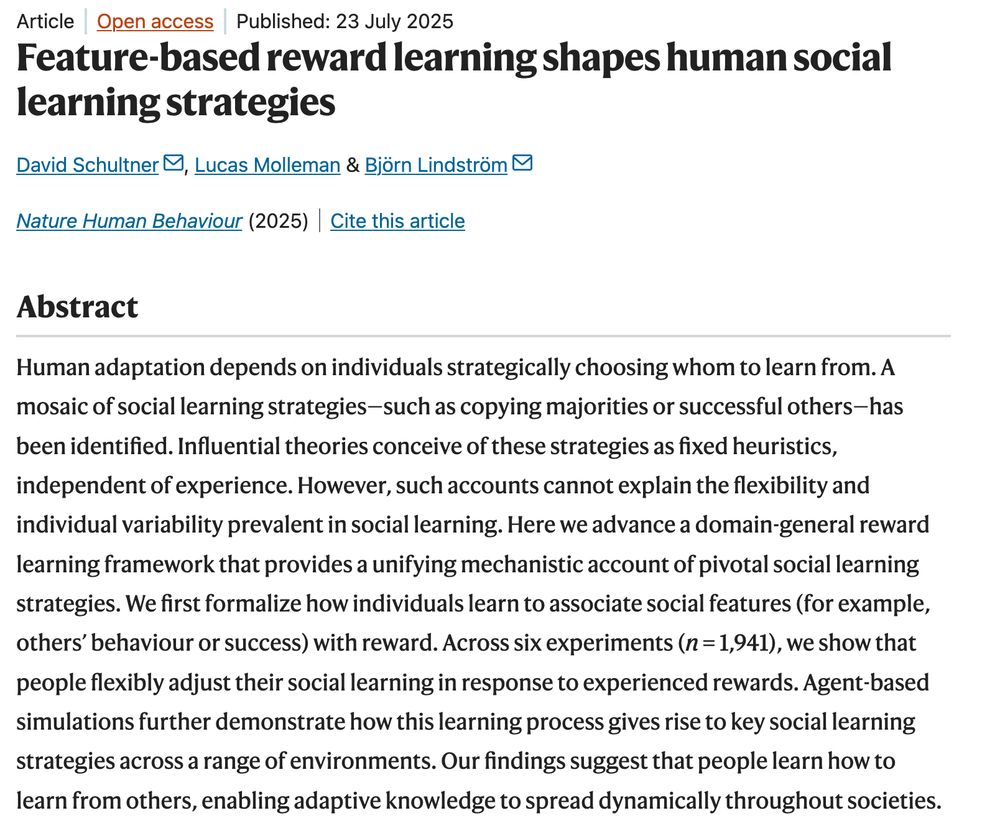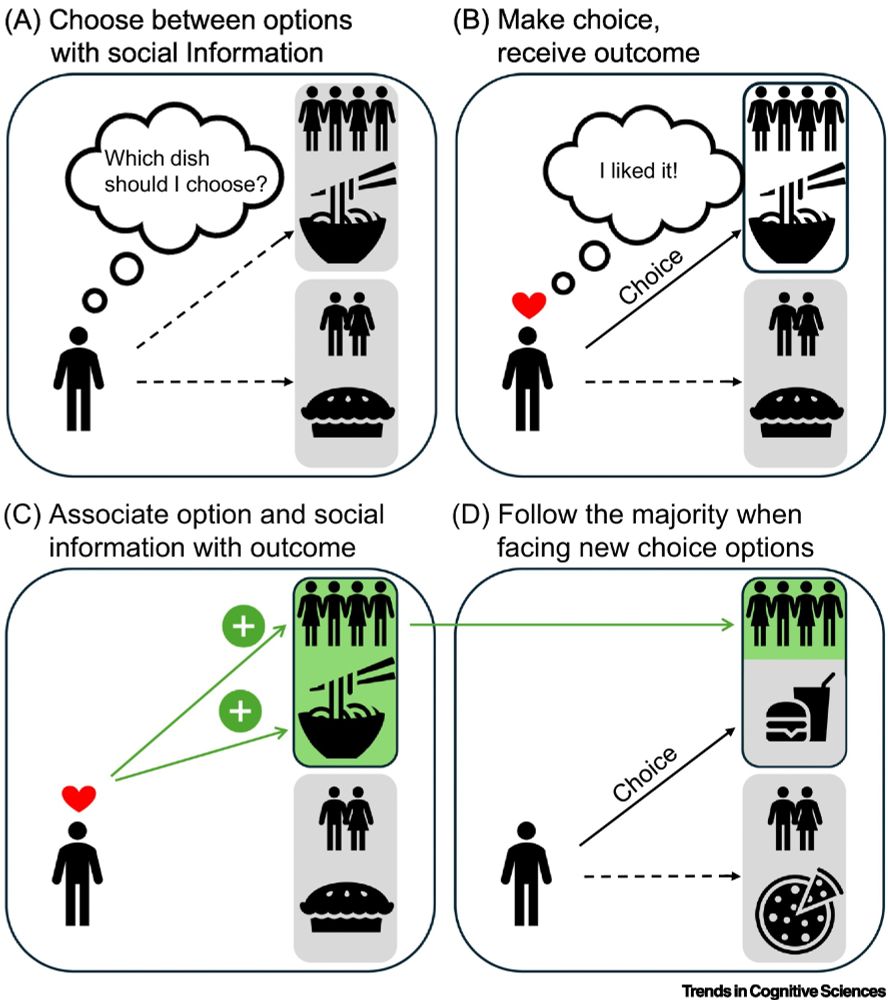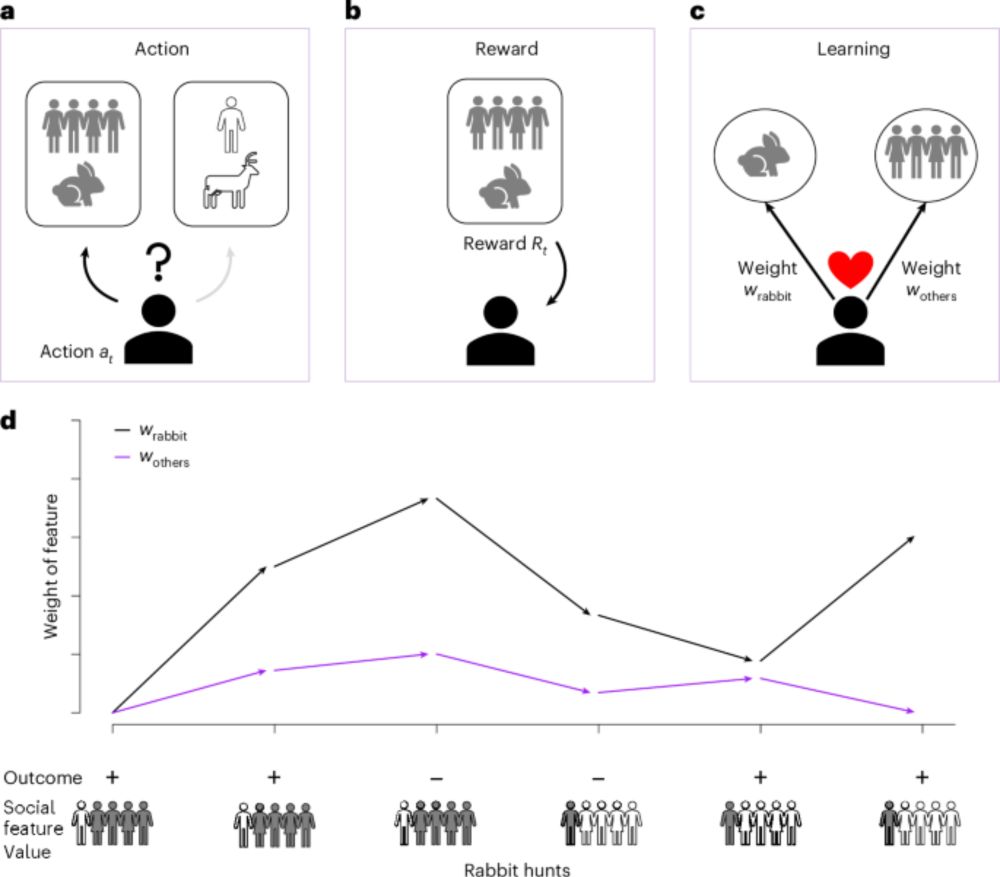David Schultner
@davidschultner.bsky.social
160 followers
240 following
27 posts
Post-doctoral researcher at Karolinska Institute. I study social cognition and social learning using a mix of experiments, computational models and simulations.
Posts
Media
Videos
Starter Packs
Pinned












